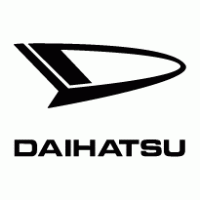
Daihatsu Motor Co., Ltd. traces its roots back to 1907, when Japan was in the grip of rapid modernization. In that year, “Hatsudoki Seizo Co., Ltd”. was founded as a joint venture between industry and academia, with the aim of producing an internal combustion engine in Japan. In 1931, the company launched a three-wheeled car equipped with a 500cc engine. Daihatsu Motor Co., Ltd. is the oldest Japanese car manufacturer, mostly known for its range of smaller models and off-road vehicles. The headquarters are located in Ikeda, Osaka Prefecture.
Since then, Daihatsu’s goal has been to create compact cars that are cherished worldwide, and it has focused its business on the development and manufacture of mini vehicles. Daihatsu is now a member of the Toyota Group, and aims to create vehicles that are fuel-efficient, affordable, eco-friendly and have high added-value, based on its three business pillars of Domestic, Overseas, and Consigned Production/OEM.
In 2016 Toyota Motor Corporation and its subsidiary Daihatsu Motor Co., Ltd. have reached an agreement whereby Daihatsu will become a wholly-owned subsidiary of Toyota.
Daihatsu sales now ceased across Europe
Daihatsu aims to produce attractive cars that are fuel efficient, affordable, and eco-friendly. In FY2021, the company sold 510,000 mini vehicles in Japan, and secured the number one share of the mini vehicle market for the 16th year in succession. At Daihatsu, we believe that these results are a consequence of the outstanding product appeal of our vehicles, and the continued and varied innovations of our distributors.
As far as production is concerned, in order to establish a business model that improves mini vehicle profits, we have carried out structural reforms such as the implementation of our Simple, Slim and Compact (SSC) Concept at production plants, as well as an overhaul of our procurement process. These changes have enabled us to manufacture mini vehicles that are appropriately fuel-efficient, affordable and eco-friendly. Moreover, we have worked hard to realize a safety-oriented and diverse line-up, and take care to comprehensively pursue car manufacturing from a customer viewpoint.
From a sales perspective, our decision to engage in more community-based sales activities has led to improved communications with our customers. This in turn has led to customer opinion being reflected in our vehicle development. The needs of our Japanese customers change at a rapid pace; for this reason, it is our goal to anticipate these changes and, at the same time, continue to be a leading manufacturer of compact cars that stimulates change of its own accord.
The No.1 share of the domestic mini vehicle market for 16 years in a row (FY2006–FY2021)
Daihatsu has secured the leading share of the mini vehicle market, which accounts for approximately 40 percent of the Japanese automobile market, for 16 years in succession. Our rich line-up caters to the needs of diverse customers, and our unique e:S technologies—which aim to realize fuel efficiency and affordable pricing—have made a significant contribution to our success.
Daihatsu Motor Co., Ltd. (“Daihatsu”) can trace its history back to 1907, a time when Japan was rapidly modernizing. Originally established as Hatsudoki Seizo Kabushiki Kaisha a company to produce domestic internal-combustion engines through industrial- academic cooperation, Daihatsu released three-wheeled cars mounted with a 500cc gasoline engine in 1931. Since then, it has engaged in business centered on mini vehicles, guided by a corporate mission to manufacture compact cars that appeal to consumers all over the world. In 1998, Toyota Motor Corporation (“Toyota”) acquired a majority of Daihatsu’s shares. Today, Daihatsu operates as a member of the Toyota Group and focuses on three main business domains: domestic, overseas, and consigned production and OEM businesses. Daihatsu seeks to manufacture cars that offer fuel efficiency, affordability, and high added value.
In March 1907, Hatsudoki Seizo Co., Ltd. was established by Professor Yoshiaki Yasunaga and Seishiro Tsurumi who were the head of Osaka Higher Technical School (presently School of Engineering, Osaka University) and the director of mechanical science department of the same school, as well as a group of businessmen, Saneyasu Oka, Masashi Kuwabara and Zenjiro Takeuchi, for the purpose of achieving domestic production of internal combustion engines. In December 1951, the company changed its name to Daihatsu Motor Co., Ltd. The name “Daihatsu” is a combination of the first kanji character for Osaka and the first kanji character for the word meaning “engines.”
Daihatsu’s corporate design system consisting of the corporate mark, corporate color, logo, etc.
was revised on the occasion of the 90th year of the company establishment, with the aim of visually
expressing “Daihatsu ways” and attaining closer and smoother relationships with society. The symbol
mark shown at the left is the core element of Daihatsu’s corporate design system.
As a consolidated subsidiary of Toyota Motor Corporation (hereinafter referred to as “Toyota”), Daihatsu collaborates
with Toyota in various areas, mainly focusing on small cars, as its specialized field. In 2008, Daihatsu, Toyota and Fuji Heavy Industries Ltd., which has a business tie-up with Toyota, established a solid cooperative system for development and production. Daihatsu will further strengthen the cooperative relationships with those companies through the development of competitive vehicles that offer superb fuel efficiency, affordable pricing and conservation of resources.
Head office : 1-1 Daihatsu-cho Ikeda-shi, Osaka 563-8651
Tokyo office : 2-2-10 Nihonbashi Honcho, Chuoku, Tokyo. 103-0023 Shinwa Building
Daihatsu
- Name Daihatsu Motor Co., Ltd.
- Date of establishment March 1, 1907
- Representative Masanori Mitsui, President
- Main business line Manufacture and sales of automobiles
- Capital 28,404,346,601 yen
- Number of employees (as of Apr 1, 2015) 12,543 persons

